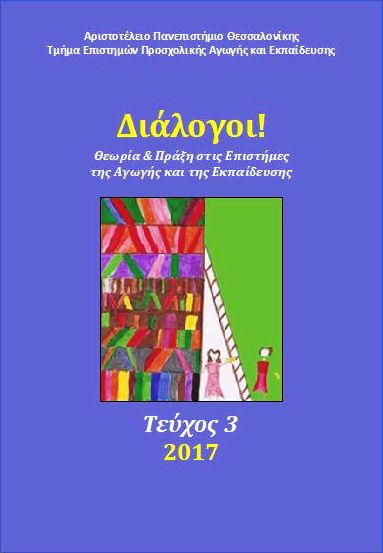Αντιλήψεις και στάσεις των εκπαιδευτικών για τη συμπεριληπτική εκπαίδευση των μαθητών/ριών με Διαταραχές Αυτιστικού Φάσματος (ΔΑΦ): Μια βιβλιογραφική ανασκόπηση

Περίληψη
Οι ερευνητές πραγματοποίησαν μια ανασκόπηση της βιβλιογραφίας για τις αντιλήψεις και στάσεις των εκπαιδευτικών για την ένταξη των μαθητών/ριών με Διαταραχές Αυτιστικού Φάσματος (ΔΑΦ). Για να βρουν τις σχετικές με το θέμα έρευνες διεξήγαγαν αναζήτηση στις βάσεις δεδομένων ERIC, PsychLIT, EBSCO, Medline, και PubMed με τις λέξεις-κλειδιά «Εκπαιδευτικοί», «Αντιλήψεις», «Στάσεις», και «Παιδιά με Αυτισμό». Από την αναζήτηση βρέθηκαν 55 ερευνητικά άρθρα, μεταπτυχιακές και διδακτορικές διατριβές σχετικά με το θέμα τους. Τα αποτελέσματα έδειξαν ότι η πλειοψηφία των εκπαιδευτικών έχει περιορισμένη ή ανεπαρκή γνώση και βασικές παρανοήσεις σχετικά με τις Διαταραχές Αυτιστικού Φάσματος. Επίσης, οι εκπαιδευτικοί είχαν αρνητικές στάσεις απέναντι στην ένταξη των μαθητών/ριών με αυτισμό. Από την άλλη πλευρά, λιγότεροι/ες εκπαιδευτικοί φάνηκε ότι έχουν θετικές στάσεις στην ένταξη αυτών των μαθητών/ριών. Ένα μεγάλο ποσοστό των εκπαιδευτικών φάνηκε να έχει διαφορετικές στάσεις/απόψεις για τον αυτισμό. Επιπλέον, η ανασκόπηση έδειξε ότι μερικοί/ές εκπαιδευτικοί τείνουν να έχουν ουδέτερες στάσεις προς την ένταξη αυτής της ομάδας μαθητών/ριών. Επιπλέον, αρκετοί/ές εκπαιδευτικοί αντιλαμβάνονται τους/τις μαθητές/ριες με αυτισμό διαφορετικά από τους/τις τυπικά αναπτυσσόμενους/ες μαθητές/τριες. Η έρευνα αυτή υποδεικνύει ότι οι εκπαιδευτικοί πρέπει να λάβουν περισσότερη κατάρτιση για τον αυτισμό και τις αποτελεσματικές εκπαιδευτικές πρακτικές για αυτούς/ές τους/τις μαθητές/ριες. Με αυτόν τον τρόπο, οι ίδιοι/ες θα αναπτύξουν θετικές στάσεις προς την εκπαιδευτική ένταξη αυτών των μαθητών/ριών.
Λεπτομέρειες άρθρου
- Πώς να δημιουργήσετε Αναφορές
-
Kofidou, C., Mantzikos, C., Chatzitheodorou, G., Kyparissos, N., & Karali, A. (2017). Αντιλήψεις και στάσεις των εκπαιδευτικών για τη συμπεριληπτική εκπαίδευση των μαθητών/ριών με Διαταραχές Αυτιστικού Φάσματος (ΔΑΦ): Μια βιβλιογραφική ανασκόπηση. Διάλογοι! Θεωρία και πράξη στις επιστήμες αγωγής και εκπαίδευσης, 3, 35–68. https://doi.org/10.12681/dial.11965
- Τεύχος
- Τόμ. 3 (2017)
- Ενότητα
- Επιστημονική Αρθογραφία

Αυτή η εργασία είναι αδειοδοτημένη υπό το CC Αναφορά Δημιουργού – Μη Εμπορική Χρήση – Παρόμοια Διανομή 4.0.
Οι συγγραφείς των άρθρων που δημοσιεύονται στο Διάλογοι! Θεωρία και Πράξη στις Επιστήμες Αγωγής και Εκπαίδευσης διατηρούν τα δικαιώματα πνευματικής ιδιοκτησίας επί των άρθρων τους, δίνοντας στο περιοδικό το δικαίωμα της πρώτης δημοσίευσης. Άρθρα που δημοσιεύονται στο Διάλογοι! Θεωρία και Πράξη στις Επιστήμες της Αγωγής και Εκπαίδευσης διατίθενται με άδεια Creative Commons 4.0 και σύμφωνα με την άδεια μπορούν να χρησιμοποιούνται ελεύθερα, με αναφορά στον/στη συγγραφέα και στην πρώτη δημοσίευση για μη κερδοσκοπικούς σκοπούς και με δικαίωμα τροποποίησης μόνον με παρόμοια διανομή (αν αναμείξετε, τροποποιήσετε, ή δημιουργήσετε πάνω στο υλικό, πρέπει να διανείμετε τις δικές σας συνεισφορές υπό την ίδια άδεια όπως και το πρωτότυπο).
To Τμήμα Επιστημών Προσχολικής Αγωγής και Εκπαίδευσης του Αριστοτέλειου Πανεπιστημίου Θεσσαλονίκης και το Εθνικό Κέντρο Τεκμηρίωσης διατηρούν το δικαίωμα να δημοσιεύουν, να αναπαραγάγουν, να παρουσιάζουν στο κοινό, να διανέμουν και να χρησιμοποιούν άρθρα που δημοσιεύονται στο Διάλογοι! Θεωρία και Πράξη στις Επιστήμες Αγωγής και Εκπαίδευσης σε οποιοδήποτε μέσο και μορφή είτε μεμονωμένα είτε ως μέρη συλλογικών έργων, για όλο το χρόνο διάρκειας προστασίας της πνευματικής ιδιοκτησίας και για όλες τις χώρες του κόσμου.
Αυτό περιλαμβάνει ενδεικτικά, και όχι αποκλειστικά, το δικαίωμα δημοσίευσης των άρθρων σε τεύχη του περιοδικού Διάλογοι! Θεωρία και Πράξη στις Επιστήμες Αγωγής και Εκπαίδευσης, αναπαραγωγής και διανομής μεμονωμένων αντιγράφων των άρθρων, αναπαραγωγής ολόκληρων των άρθρων σε άλλη έκδοση του Τμήματος Επιστημών Προσχολικής Αγωγής και Εκπαίδευσης του Αριστοτέλειου Πανεπιστημίου Θεσσαλονίκης και του Εθνικού Κέντρου Τεκμηρίωσης και αναπαραγωγής και διανομής των άρθρων ή περίληψης αυτών με χρήση πληροφορικού συστήματος αποθετηρίου.


